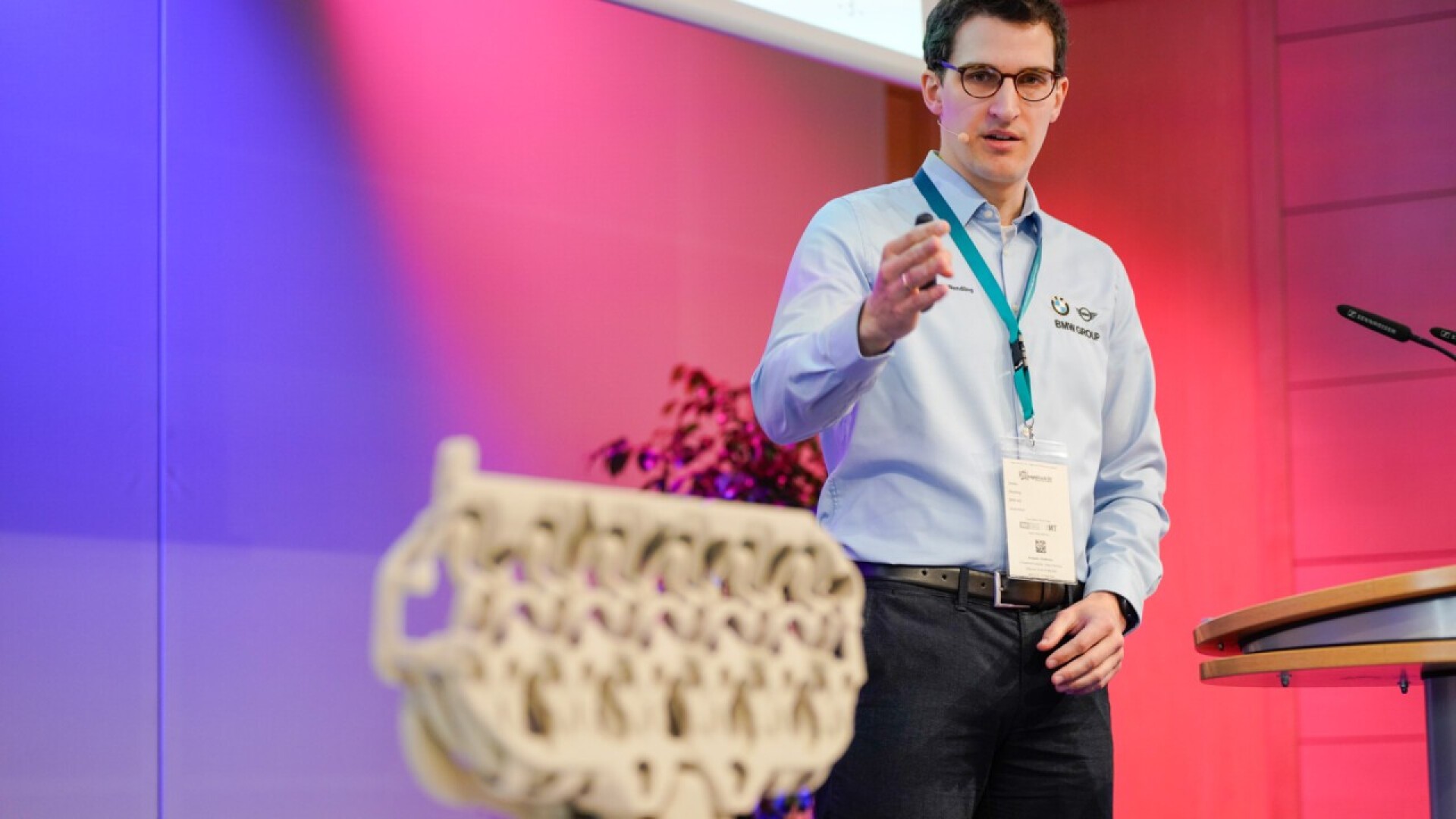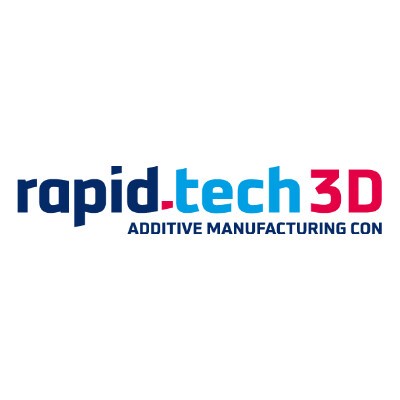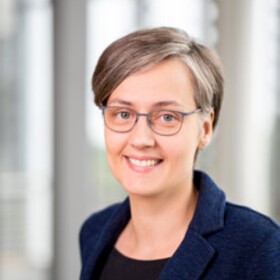Rapid.Tech 3D shines in anniversary year: bringing together what belongs together
Marking its 20th anniversary, Rapid.Tech 3D has impressively reaffirmed its reputation as a pioneering trade event for industrial 3D printing. Once again, 2,700 visitors from Germany and abroad came to Erfurt between 14 and 16 May 2024.
(Erfurt, 16 May 2024). Marking its 20th anniversary, Rapid.Tech 3D has impressively reaffirmed its reputation as a pioneering trade event for industrial 3D printing. Once again, 2,700 visitors from Germany and abroad came to Erfurt between 14 and 16 May 2024 to learn about and compare notes on the latest applications, developments and trends in the field. This year’s event was for the first time sponsored by the VDMA (German mechanical and plant engineering association) Additive Manufacturing Working Group.
The four keynote speeches at the high-calibre specialist conference, along with some 70 presentations, almost 100 exhibitor presentations in the hall and intensive networking formats, were a clear demonstration that additive manufacturing (AM) has a firm foothold in series production and that developments in both materials and technology are constantly expanding its applications. This is true both of established AM user industries such as aerospace, medical technology and automotive and of industries where AM is still a relatively new technology, such as microelectronics, chemicals and mechanical engineering.
AM on a continuous growth path after overheating
In a keynote interview with Rapid.Tech 3D advisory board chairman Prof. Dr Christian Seidel, AM pioneer Dr Brent Stucker, technology strategist at Wohlers Associates, outlined the developments that can be anticipated over the next ten years. After a period of overheating, the AM global industry has returned to a continuous growth trajectory. This offers excellent opportunities for operators such as German mechanical engineering companies and technology providers. According to Stucker, now is a good time to push ahead with new developments and enhancements relating to AM machinery, materials and applications, and to generate capital for them. The expert anticipates significant dynamism with regard to metallic applications. However, standardisation remains a major challenge.
AM boosts performance in the semiconductor industry
The keynote speech by Dr Radu Donose, Competence Lead Additive Manufacturing at Dutch company ASML, gave an insight into the use of AM in emerging sectors. ASML manufactures lithography systems for chip production and already mass-produces more than 200 metal, plastic and ceramic machine parts using additive manufacturing techniques. AM, said Dr Donose, helps to increase the performance of ASML’s machines. To ensure quality, the company has developed an internal standard for the entire value chain, which enables suppliers to produce parts on a consistently reliable basis.
The right platform for the key issue: mechanical engineering
The first-ever AM4industry forum focused on AM applications for and within mechanical engineering and included contributions from Reintjes, DiManEx, toolcraft, Hermle, Siemens and Trumpf. The forum was initiated and hosted by the AM Working Group of the German mechanical and plant engineering association VDMA. In the opinion of Rainer Gebhardt, Additive Manufacturing Project Manager at VDMA: “The diverse potential of AM for mechanical engineering are far from being fully recognised. Events like Rapid.Tech 3D, where suppliers and users meet, provide excellent opportunities for expertise providers and potential users to network. At our first AM4industry forum, companies demonstrated how additive manufacturing can help achieve greater efficiency and sustainability, for example in shipbuilding or low-emission mobility. Speakers also highlighted the advantages of combining traditional subtractive and new additive processes, particularly in connection with digitalisation and the intelligent networking of processes. The way people have responded to this opportunity shows that Rapid.Tech 3D is the right platform for presenting and discussing the key topic of AM and mechanical engineering.”
“We found what we were looking for here”
AM applications are also gaining momentum in the process industry. This was demonstrated in the keynote speech by Dr Jan Brummund, Business Development Manager at Dutch company InnoSyn. The research and production service provider for the chemical industry plays a pioneering role in the development of 3D-printed flow reactors and also presented its services at the exhibition. Summing up the experience, Dr Brummund concluded, “Presenting in Erfurt far exceeded our expectations. As a development partner and service provider to the chemical industry, we have been involved in additive manufacturing for some time and presented our 3D-printed flow reactors at Rapid.Tech 3D. The response both to my keynote address and at our stand was overwhelming. As a user, we found exactly what we were looking for: the dialogue with 3D printing experts that will enable us to further improve our products and processes. And the AM specialists in their turn were just as interested in our requirements. This event provides the ideal atmosphere for this kind of discussion. The quality is spot on here.”
Inorganic 3D printing of sand cores: an automotive industry benchmark
Jochen Wendling from the BMW Group plant in Landshut used his keynote speech to present an innovation from the automotive sector. The vehicle manufacturer is setting a benchmark for series production of automotive engines with its inorganic 3D printing of sand cores. The process and the materials used mean the foundry is the first of its kind to manufacture CO2-free. Up to 4,500 cores are produced every day. The foundry technology expert sees potential future applications for the technology in the production of bionic automotive structures, e.g. chassis, which would help reduce weight and costs.
In the subsequent mobility forum, experts from Audi, Honda and Mercedes-Benz, among others, presented further AM solutions for the industry.
The other industry and subject forums at the specialist conference, such as Aerospace, Innovations in AM, Software, AI & Design as well as AM Science and AM Science by Fraunhofer, were also buzzing with lively and fascinating exchanges between suppliers and users.
Having a presence in Erfurt was well worth it
Visitors were able to examine numerous innovations in materials, machines and technology for themselves at the exhibition stands, and see most of them in action. Among the exhibits was the multi-axial 3D printing solution from start-up FLIPoQ. Co-founder and CFO Christian Ladner was thrilled by the tremendous turnout: “We are a start-up, but have been attending Rapid.Tech 3D for several years. Last year, we were finalists in the 3D Pioneers Challenge with our five-axis 3D printing process. We are now in the process of commercialising this innovative technology, which enables double-sided printing of filaments or granules with virtually no support structures. Having a presence here, together with our cooperation partner, the extruder manufacturer Metexon, has been well worth it. We were able to present our product to an expert audience and discuss market requirements with potential users.”
A veteran attendee of Rapid.Tech 3D is Thuringian company Portec GmbH, which this year had a joint stand with other companies from the region. “We are one of the pioneers of Rapid.Tech 3D, so to speak, because we have been exhibiting from the very beginning. Being able to showcase our range of services here is important to us. As a producer of plastic and metal prototypes and small series, we bridge the gap between additive manufacturing and casting technology,” says Managing Director Holger Krause.
Positive mood at Rapid.Tech 3D continues
Exhibitors highlighted the positive mood at Rapid.Tech 3D, which has continued to be a feature this year. They value the knowledgeable audiences and the opportunity for in-depth, practical discussion. Compared to similar events, they said, this one provides real added value. New networking formats such as Technical Deep Dives and the AM Science Corner further boosted the success of this year’s event.
Electronic skin wins top prize in 3D Pioneers Challenge
Rapid.Tech 3D 2025
The next Rapid.Tech 3D will be held in Erfurt from 13 to 15 May 2025.


